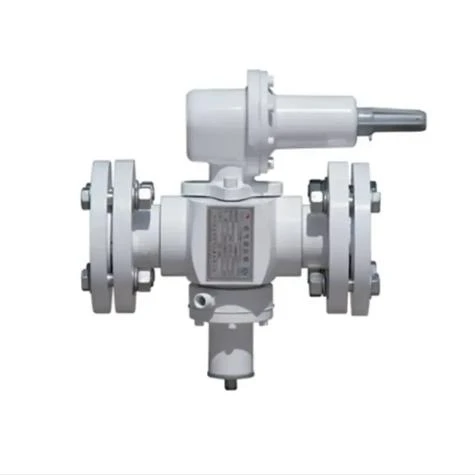
Dec . 09, 2024 22:06
Back to list
Natural Gas Filter Solutions for Enhanced Efficiency and Performance
The Role of Natural Gas Filters in Modern Energy Solutions
Natural gas has increasingly become a vital component of the global energy landscape. With its cleaner-burning properties compared to other fossil fuels, it serves as a bridge to a more sustainable energy future. However, to ensure its safe and efficient use, the role of natural gas filters cannot be overstated. These filters play a crucial part in maintaining the integrity of natural gas systems, enhancing performance, and protecting equipment.
Understanding Natural Gas Filtration
Natural gas filtration is the process of removing impurities and contaminants from natural gas before it reaches consumers or is utilized in various industrial processes. Common impurities include water vapor, hydrocarbons, sulphur compounds, and particulate matter. If left unchecked, these contaminants can cause significant operational issues, including corrosion, clogs, and inefficiencies in combustion.
The main objectives of natural gas filters are to improve the quality of the gas, prolong the life of equipment, and ultimately enhance safety for both users and the environment. This filtration process begins at the extraction phase, where initial filtration removes large particles. Subsequent filtering occurs during transportation and distribution, ensuring that the gas remains free of harmful substances.
Types of Natural Gas Filters
Several types of filters are employed in natural gas systems, each designed to tackle specific types of contaminants
.
2. Particulate Filters Designed to capture solid contaminants such as dirt and rust, particulate filters help maintain the flow of clean gas. They are critical in preventing damage to pipelines and valves. 3. Activated Carbon Filters These filters effectively adsorb volatile organic compounds (VOCs) and other toxic substances, ensuring that the gas is not only clean but also safe for consumption.
مرشح الغاز الطبيعي

4. Desiccant Filters Used to remove moisture from the gas, desiccant filters play a key role in preventing pipeline corrosion and maintaining the efficiency of gas-burning equipment.
Benefits of Effective Filtration
The advantages of implementing high-quality natural gas filters are manifold
- Operational Efficiency Clean gas leads to more efficient combustion, which translates into lower energy costs and reduced greenhouse gas emissions. This not only benefits the environment but also enhances the bottom line for industries reliant on natural gas.
- Equipment Longevity By reducing impurities, filtration systems protect compressors, pipelines, and other essential equipment from wear and tear. This decreases maintenance costs and extends the lifespan of critical infrastructure.
- Safety The removal of flammable and toxic substances reduces the risk of accidents, making natural gas a safer alternative to other fuels. This is particularly important in residential settings where the use of natural gas for heating and cooking is common.
- Environmental Impact The cleaner the natural gas, the fewer emissions produced during combustion. By filtering out harmful constituents, natural gas can significantly reduce its carbon footprint, aligning with global sustainability goals.
Conclusion
As the world continues to transition towards cleaner energy sources, the importance of natural gas filtration cannot be overlooked. By ensuring that natural gas is free from contaminants, we can maximize its efficiency, safety, and environmental benefits. Investing in advanced filtration technologies will not only improve the operational capabilities of natural gas systems but also support the broader goals of energy sustainability and environmental protection. As we navigate the complexities of the energy landscape, embracing effective filtration solutions will be essential for harnessing the full potential of natural gas in a cleaner, greener future.
Latest news
-
Safety Valve Spring-Loaded Design Overpressure ProtectionNewsJul.25,2025
-
Precision Voltage Regulator AC5 Accuracy Grade PerformanceNewsJul.25,2025
-
Natural Gas Pressure Regulating Skid Industrial Pipeline ApplicationsNewsJul.25,2025
-
Natural Gas Filter Stainless Steel Mesh Element DesignNewsJul.25,2025
-
Gas Pressure Regulator Valve Direct-Acting Spring-Loaded DesignNewsJul.25,2025
-
Decompression Equipment Multi-Stage Heat Exchange System DesignNewsJul.25,2025

